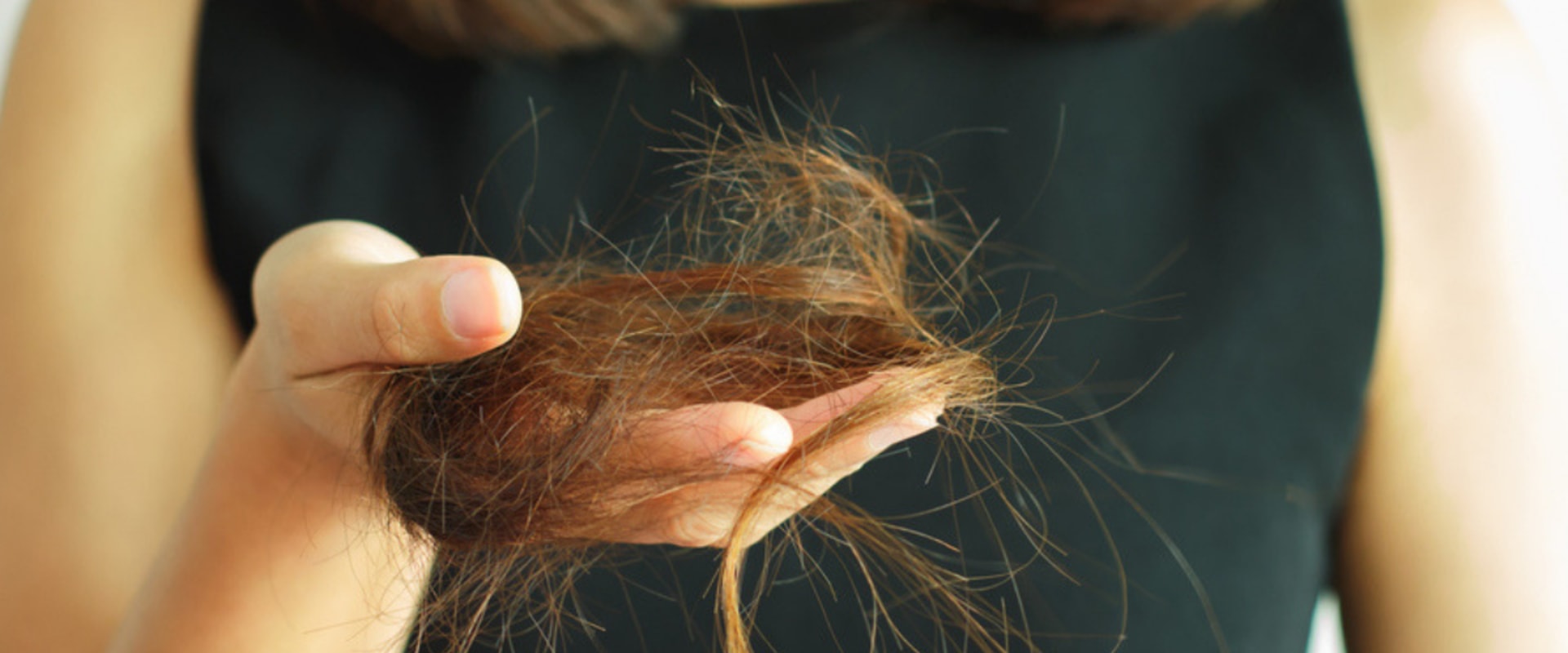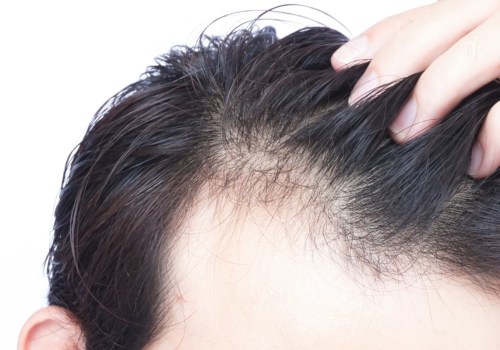Hair regrowth After weight loss, it usually takes about 3-6 months for hair to grow back after losing weight. Both the body and the hair follicles react to the physical stress of severely reduced calories or lack of necessary nutrients. When the body is denied nutrients, especially proteins, it stops hair production to save nutrients in order to preserve vital organs. Mass detachment does not happen immediately.
In some cases, people notice that their hair loss worsens after they stop intense dieting. It can take up to a year for lost hair to grow back, as they have to go through a resting phase after massive hair loss. Extreme weight loss can also result in increased production of male sex hormones called androgens. These hormones are meant to kill hair follicles.
Once the hair follicles are destroyed, there is no chance that it will grow back. ET usually occurs about 3 months after a triggering event, such as rapid weight loss, and lasts about 6 months. Age, genetics, hormones, thyroid problems, medications, and autoimmune diseases can cause hair loss. Whether, and how quickly, your hair grows back after hair loss will depend on the underlying cause of your hair loss.
Hair on the head grows about half an inch per month, or 6 inches per year. In general, male hair grows slightly faster than female hair. After a bad haircut, you can expect your hair to grow back at this rate. How long it takes for hair to grow back depends on the underlying cause of hair loss.
As we age, some follicles stop producing hair. This is known as hereditary hair loss, pattern hair loss, or androgenetic alopecia. This type of hair loss is usually permanent, which means that the hair will not grow back. The follicle itself wrinkles and is unable to regrow hair.
You may be able to slow the process of hair loss with a prescription oral treatment called finasteride (Propecia) or a topical treatment called minoxidil (Rogaine). Many men with male-pattern hair loss eventually go bald. Female pattern hair loss can cause hair to thin, but rarely leads to baldness. Alopecia areata is an autoimmune condition in which the immune system mistakenly attacks the hair follicles.
Hair usually falls out in small patches on the scalp, but hair loss can occur in other parts of the body, such as the eyebrows, eyelashes, arms, or legs. Scalp psoriasis can cause temporary hair loss. Scratching your scalp to relieve itching or remove scales can make it much worse. Once you find an effective treatment for your psoriasis and stop scratching your scalp, your hair will begin the growth process.
Hair loss due to hormonal changes and imbalances is temporary, although it is difficult to predict when hair will begin to grow again. Conditions that cause too much thyroid hormone (hyperthyroidism) or too little thyroid hormone (hypothyroidism) can cause hair loss. Hair will normally grow back once the thyroid disorder is successfully treated. Not getting enough iron or zinc in your diet can cause hair loss over time.
Correcting the deficiency can provoke hair growth. Even so, it can take several months for hair to grow back. Chemotherapy is usually used to treat cancer. Chemotherapy is a powerful drug that attacks rapidly sinking cells, such as cancer cells, but it can also attack hair follicles in the scalp and other parts of the body, leading to rapid hair loss.
Hair will begin to grow back on its own two to three weeks after chemotherapy is complete. Hair can grow back like a soft fluff at first. After about a month, real hair will begin to grow back at its normal rate of 6 inches per year. Your new hair may grow back to a different texture or color than before.
In rare cases, hair loss from many years of strong chemotherapy can be permanent. Telogen effluvium occurs when a large number of hair follicles on the scalp enter the telogen (rest) phase of the growth cycle at the same time, but the next growth phase does not begin. Hair starts to fall out all over the scalp, but no new hair grows. It is usually triggered by a medical event, such as childbirth, surgery, or high fever, or by starting or stopping medicines, such as birth control pills.
The telogen effluvium usually begins about three months after the event. Hair may look thin, but you probably won't go completely bald. Once the triggering event is treated (or recovers from the disease), hair may begin to grow again after six months. However, this type of hair loss can last for years in some people.
While taking steps to support hair growth, consider wearing a wig or hair extensions in the meantime. Hair transplants may be another option for permanent hair loss. But you must do what makes you happy. Hair grows back at a rate of about 6 inches per year.
If your hair falls out, see a doctor to be diagnosed with the cause of your hair loss. If your hair loss is caused by a medical condition, you'll need treatment to treat the entire condition, not just its symptoms, before your hair can recover. Massaging the scalp is said to promote blood flow to the area and thus create a more suitable environment for hair to grow. This can be done in a variety of ways, but I use a shampoo brush with soft silicone bristles every time I wash my hair.
After applying my shampoo, I use it to rub it, moving it around my scalp in 15-20 second bursts until it covers my entire scalp. Hair loss occurs when stress on the body causes hair to stop growing and enter the catagen phase too early. They will go into the telogen phase and fall prematurely. So can hair grow back after a period of malnutrition? The answer is yes.
Diet-related hair loss can be recovered as long as the patient resumes a proper diet, remains stress-free and maintains a healthy scalp environment. However, it may take some time depending on your age, genetic makeup, and other factors. Maintaining a balanced diet while avoiding fast diets and quick fixes is important for long-term weight loss success, as well as avoiding telogen effluvium. This type of hair loss is generally known as telogen effluvium and is a common cause of hair loss.
Your doctor or dermatologist will most likely prescribe biotin multivitamins to help your hair grow back strong and healthy. One of the most common causes of hair loss is malnutrition, when the human body does not receive the vitamins, minerals and nutrients it needs to function properly. While it starts to improve as I get closer to my target weight, I try to help speed up the process by doing these five things. To prevent hair loss, avoid restrictive and shock diets, feed your body properly and supplement before and after weight loss surgery.
Many people do this on the face to fight aging, but some studies have also shown positive results to help with hair loss. Formulated specifically for the scalp, PEP Scalp is an innovative alternative to PRP treatment for hair and scalp rejuvenation. However, hair loss can also be due to underlying health problems, so it's important not to self-diagnose hair loss as being related to weight loss. Studies have found that deficiencies in nutrients such as iron, zinc, and biotin due to eating disorders, starvation, or malnutrition are closely related to hair loss or thin, brittle hair.
Fortunately, the effects of malnutrition on the hair are reversible as long as you regain nutritional stability for 6 months or more. Other nutrients involved in hair loss include zinc, biotin, folate, vitamin B-6, and essential fatty acids. Telogen effluvium after weight loss is sometimes the result of nutrient deficiencies in the diet and the cumulative effects of weight loss on the body. Simply put, the rest of your body usually takes precedence when it comes to protein, so, with the wrong diet, your hair can suffer.
If you have hair loss, it's critical that you identify the cause before trying to treat it. . .





